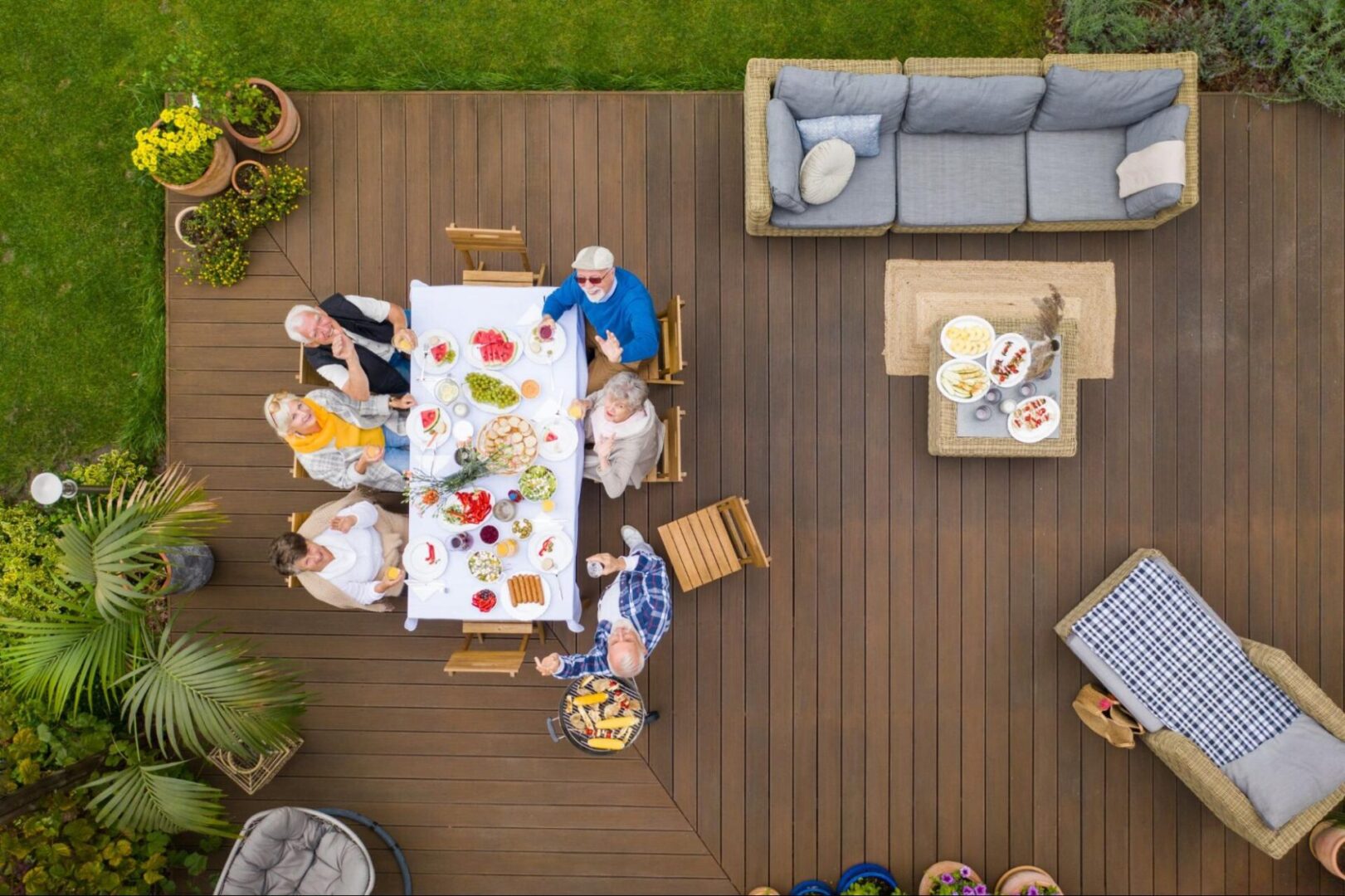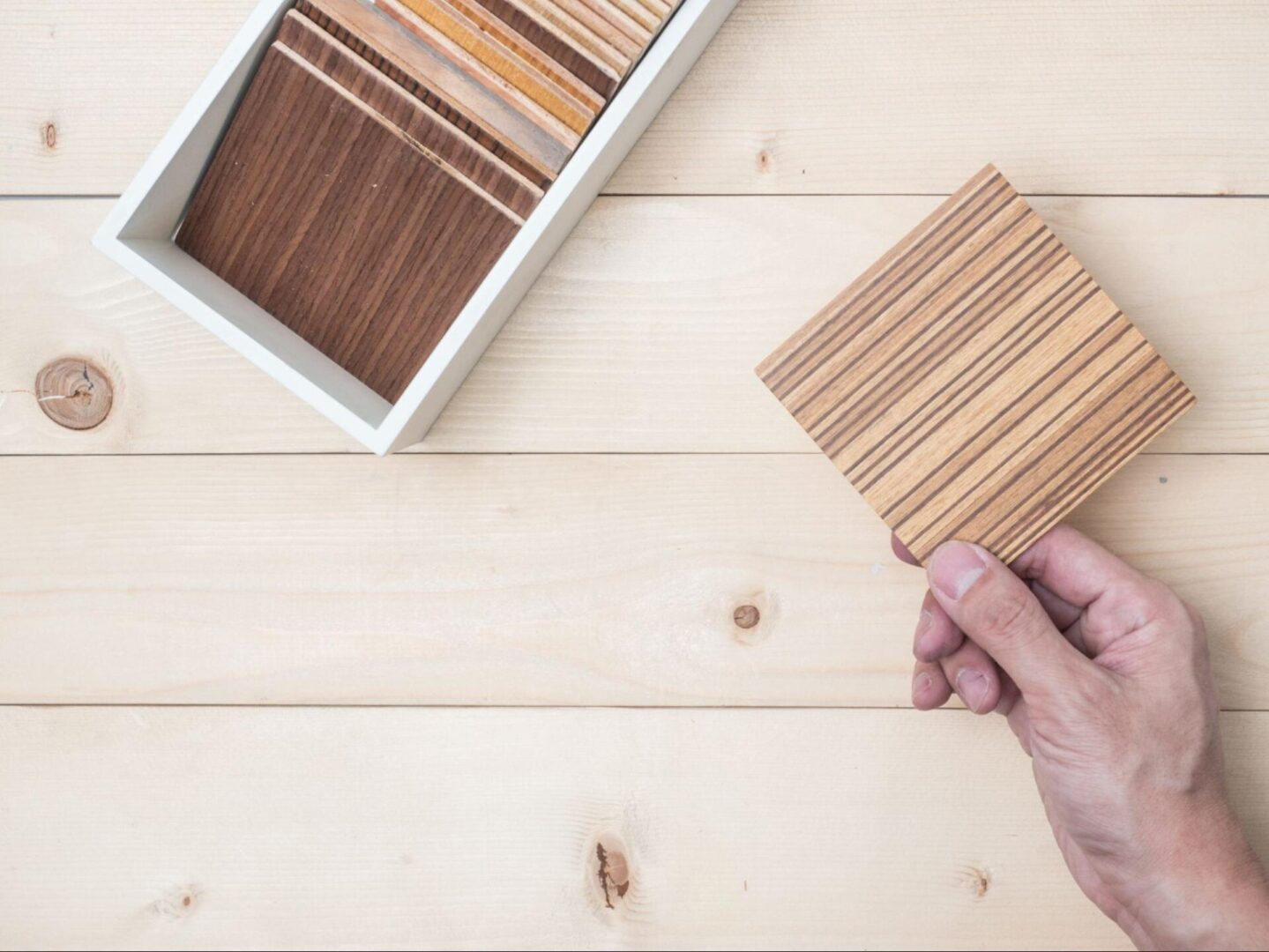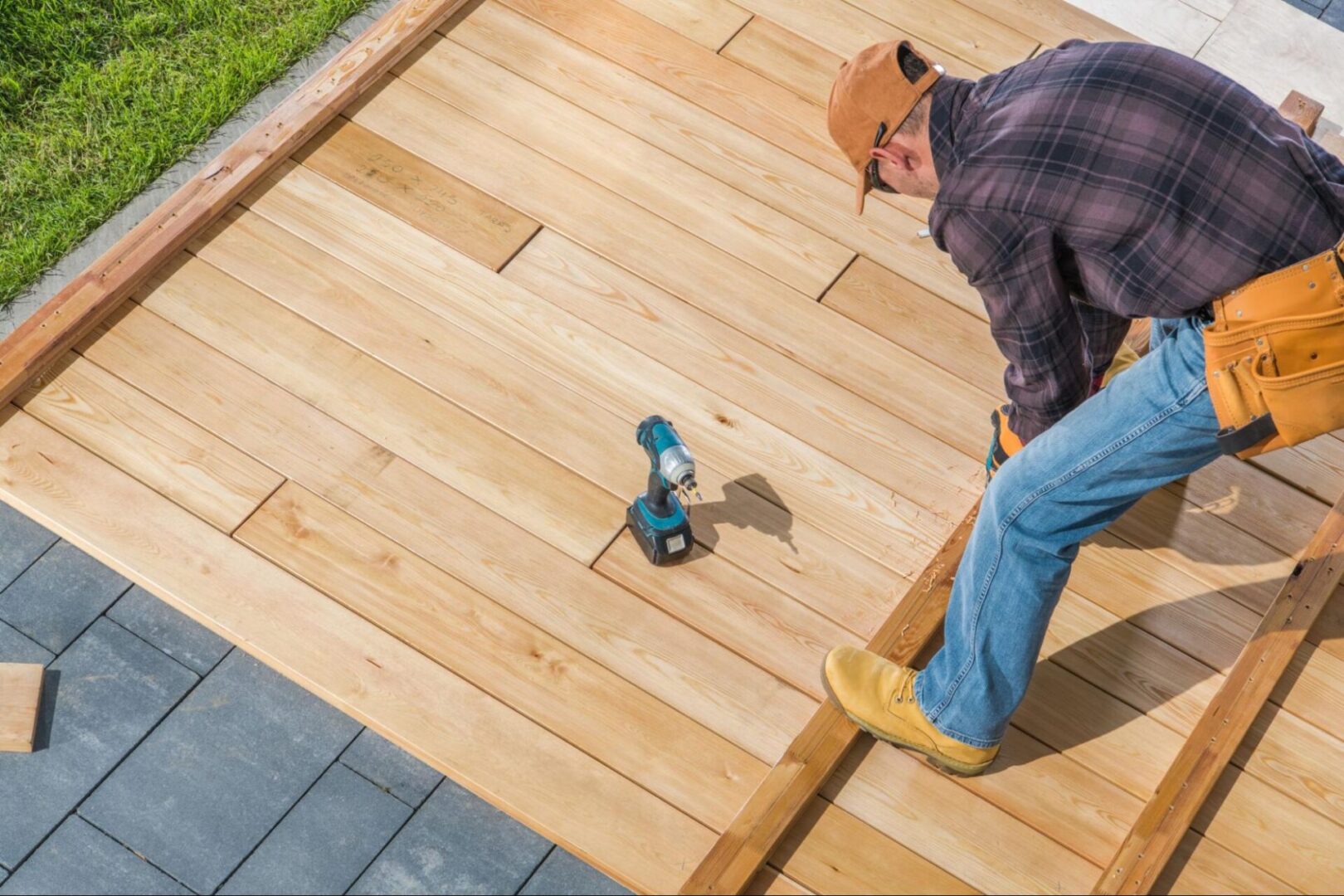
Deck materials vary in durability, maintenance needs, and resistance to the elements. Composite, PVC, hardwood, and pressure-treated wood offer unique benefits, but some last significantly longer. Factors like moisture resistance, UV stability, and structural integrity determine how well a material holds up. Comparing these options helps in choosing a deck built to last.
Why Deck Materials Matter
The right deck materials enhance durability, functionality, and aesthetics. Choosing the right materials ensures a deck withstands environmental challenges while maintaining its aesthetic appeal. It also impacts maintenance efforts, construction costs, and the property’s overall value. Proper consideration of deck materials allows for a balance between durability, beauty, and cost-effectiveness.
Durability and Longevity
Using durable materials ensures the deck remains stable and functional for many years. Properly chosen materials can resist wear and tear caused by daily use and environmental exposure. Robust materials reduce the likelihood of cracks, warping, or structural damage. Investing in durable options minimizes the need for frequent repairs, saving time and costs in the long run.
Visual Appeal
The appearance of a deck significantly depends on the materials used. Different textures, colors, and finishes create unique aesthetics that can complement various architectural styles. High-quality materials maintain their visual charm longer, resisting fading or discoloration. A visually appealing deck enhances outdoor spaces, making them more enjoyable and welcoming for gatherings and relaxation.
Maintenance Requirements
The level of care a deck requires is directly linked to its material. Low-maintenance materials eliminate the need for constant cleaning, sealing, or painting. Fewer maintenance demands make keeping the deck in good condition easier, even for busy homeowners. Choosing materials with lower upkeep requirements saves both effort and resources over time.
Resistance to Weather
Certain deck materials excel at withstanding harsh environmental conditions. Options like composite or tropical hardwood are moisture-resistant, preventing rot or mold. Materials that resist UV rays maintain their appearance and strength, even in sun-drenched climates. A weather-resistant deck offers consistent performance regardless of seasonal changes or extreme conditions.
Property Value
A deck built with premium materials enhances a home’s overall value. Prospective buyers often prioritize outdoor features that are both attractive and durable. High-quality materials add a sense of luxury and reliability, increasing the property’s appeal. By investing in superior deck materials, homeowners boost their property’s marketability and long-term value.
Popular Deck Materials That Last
Each deck material offers unique advantages and challenges, allowing homeowners to select the best option. Balancing cost, appearance, and durability ensures a deck that enhances outdoor spaces while standing the test of time. Exploring popular materials helps make decisions that lead to a long-lasting and visually appealing structure.

Pressure Treated Wood
Pressure-treated wood is widely preferred due to its affordability and resistance to rot and pests. The wood undergoes chemical treatments that protect it from decay, making it suitable for outdoor applications. Its natural appearance easily blends with most home designs, offering versatility in style. While durable, regular maintenance, such as sealing and staining, is essential to prevent cracking and fading over time. For homeowners on a budget, this material provides a cost-effective solution with moderate upkeep requirements.
Composite Decking
Composite decking stands out for its durability and low-maintenance properties, making it a favorite among homeowners seeking convenience. This material is created from a blend of wood fibers and plastic, offering resistance to rot, mold, and insect damage. Its availability in various colors and finishes provides flexibility in design, accommodating different aesthetic preferences. Unlike natural wood, composite decking does not require staining or sealing, reducing upkeep time and costs. While its initial cost is higher than wood, its long lifespan and minimal maintenance make it a worthwhile investment.
Cedar
Cedar is known for its natural beauty and eco-friendly qualities, making it an attractive choice for homeowners who value sustainability. Its natural oils act as a deterrent to pests and rot, eliminating the need for chemical treatments. The rich, warm tones of cedar add elegance to outdoor spaces, creating a timeless aesthetic. Regular maintenance, such as staining or sealing, helps retain its color and protects it from weathering. Despite its higher cost, cedar’s lightweight and easy-to-install nature makes it a practical choice for decks.
Tropical Hardwoods
Tropical hardwoods such as ipe, teak, and mahogany are renowned for their unparalleled durability and rich, luxurious appearance. These woods naturally resist decay, pests, and harsh weather, making them ideal for long-lasting outdoor structures. Their dense composition ensures decades of use with minimal wear, even under heavy foot traffic. Regular maintenance, including oiling, helps preserve their color and natural beauty over time. Due to their density, installation can be labor-intensive, and the high cost may limit accessibility for some homeowners.
PVC Decking
PVC decking is a fully synthetic option for maximum durability and minimal maintenance. It is impervious to moisture, pests, and rot, making it a reliable choice for areas with extreme weather conditions. The material retains its color and finish for years, requiring only occasional cleaning to maintain its appearance. Although highly durable, PVC decking often lacks wood’s warmth and natural feel, which may not suit all preferences. The initial cost can also be higher than traditional wood options, but its longevity and ease of upkeep make it appealing for long-term use.
Choosing Deck Materials That Last the Longest
Choosing deck materials that last the longest requires considering several key factors. Weather resistance, durability, maintenance needs, and overall cost all play a role in determining the best option for your space. Some materials, like composite and PVC, offer superior longevity with minimal upkeep, while natural wood provides classic beauty but requires regular maintenance. Understanding these factors helps homeowners make an informed decision, ensuring their deck remains strong, stylish, and functional for years.

Consider Your Climate
The local climate determines the best deck material for your space. Materials like composite or tropical hardwood perform well in humid or rainy conditions due to their moisture resistance. If your area experiences extreme heat, PVC decking may be better suited since it resists warping and fading caused by sun exposure.
Consider Maintenance
Different materials require varying levels of upkeep, affecting the time and effort needed to maintain your deck. Composite and PVC decking are excellent low-maintenance options, requiring little more than occasional cleaning. Natural woods like cedar or tropical hardwood need regular staining or sealing to preserve their appearance and durability, so consider how much maintenance you’re willing to commit to.
Factor in Durability
Durability is essential for ensuring your deck withstands regular use and exposure to the elements. Tropical hardwoods and composite materials are known for their exceptional longevity, lasting decades with minimal wear. Pressure-treated wood is also durable, requiring more maintenance to prevent damage over time.
Match the Style of Your Home
The deck should complement the architectural design and overall aesthetic of your home. Natural woods like cedar or tropical hardwood offer classic appeal, blending seamlessly with traditional or rustic designs. For modern or minimalist homes, composite or PVC decking provides clean lines and a polished finish that matches contemporary tastes.
Stay Within Your Budget
Balancing quality and cost is critical when choosing the right material for your deck. Pressure-treated wood is the most budget-friendly option but may require more maintenance, leading to additional fees. Composite and PVC materials have higher upfront costs but offer savings in the long run due to their low maintenance and extended lifespan.
Factors Affecting the Choice of Deck Materials
Selecting the perfect deck material involves evaluating several key factors that directly influence your outdoor space’s functionality and aesthetics. These considerations ensure that your deck complements your home and stands the test of time under various conditions. By examining each factor carefully, you can make an informed decision that aligns with your lifestyle, budget, and environmental preferences.
Environmental Impact
Eco-conscious homeowners often prioritize the environmental footprint of their deck materials, seeking sustainable and recyclable options. Composite decking made from recycled plastics or FSC-certified hardwoods helps reduce environmental impact. Aluminum decking is fully recyclable, offering another environmentally friendly choice. Selecting materials with lower ecological effects supports sustainable living practices and contributes to preserving natural resources.
Installation Complexity
The ease of installation can influence your choice of deck materials, especially for those planning to undertake the project themselves. Pressure-treated wood is easier to work with and requires standard tools, making DIY installations more feasible. In contrast, materials like aluminum or PVC may necessitate specialized tools or professional expertise to ensure proper installation. Understanding the installation process helps you select materials that match your skill level and project timeline.
Safety Features
Safety is paramount when selecting deck materials, especially for households with children or pets. Slip-resistant surfaces reduce the risk of accidents, making your deck safer in all weather conditions. Some materials naturally offer better traction, while others can be treated with coatings to enhance safety. Prioritizing safety features ensures your deck is beautiful and a secure space for everyone to enjoy.
Local Building Codes and Regulations
Compliance with local building codes and regulations is essential when choosing deck materials. Depending on regional building standards, certain materials may be required or restricted, influencing your selection process. Adhering to these codes ensures that your deck is legally compliant and safe for use. Consulting local guidelines helps you avoid potential issues during construction and future inspections.
Resale Value
Investing in high-quality deck materials can significantly impact your home’s resale value. Potential buyers often view a well-constructed, durable deck as a valuable addition, enhancing the property’s overall appeal. Premium materials like hardwood and aluminum can make your home stand out, potentially leading to a higher selling price. Considering resale value encourages selecting materials that offer immediate enjoyment and long-term financial benefits.
Availability of Materials
Your region’s availability of deck materials can influence your choice and project timeline. Locally sourced materials may reduce costs and ensure quicker delivery, making them a practical option for many homeowners. Limited availability of certain materials might necessitate choices or extended wait times for procurement. Assessing material availability helps you plan effectively and avoid delays in your deck-building project.
Deck Materials and Their Impact on Longevity
Deck materials are the foundation for creating outdoor spaces that endure wear while maintaining charm. Selecting materials based on durability, climate suitability, and maintenance preferences ensures a deck that aligns with lifestyle and design goals. Quality options require less upkeep, allowing homeowners to enjoy their spaces without frequent repairs. Reliable materials also contribute to long-term value, enhancing the deck’s appeal for years. A well-built deck with the right materials becomes a lasting feature that seamlessly combines elegance and functionality.
Visit our Minnesota’s 1st Choice Replacement Windows and Doors blog for expert tips and insights on creating durable, beautiful outdoor spaces.

